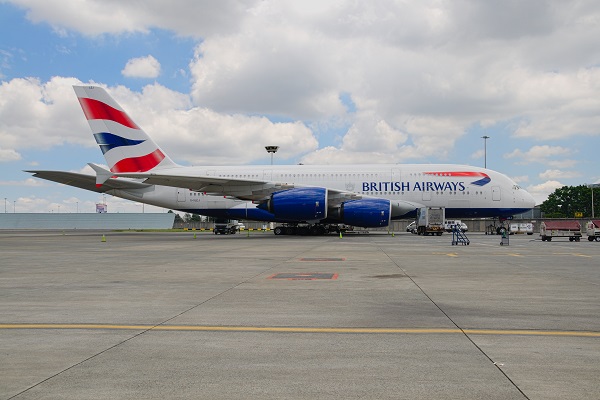IAG losses pile up during wait for travel green light
7th May 2021 08:46
by Richard Hunter from interactive investor
A return to international tourism is crucial, as the BA owner loses another €1bn in three months.

International Consolidated Airlines Group (LSE:IAG) may be poised for a return to the skies, but for the moment its prospects are grounded on factors beyond its control.
The imminent “green list” announcement from the government should provide some clarity as to how much of Europe (or indeed, further afield) will be accessible. There are also the potentially added complications of quarantine, the cost of Covid tests and even vaccine passports.
In addition, British Airways has long been a stalwart of the business travel sector, where questions remain over the likelihood of a return to this previously lucrative line of business. The seamless transition to virtual meetings during the pandemic means that the costs and time of physical travel will be harder to justify than at any time in the recent past.
- 10 UK tech stocks that are on the move
- Bill Ackman: THE serious threat to investors in 2021
- Shares for the future: everything you need to know
At the same time, for individuals there may be a conflict between the ability to spend, given a potentially tougher economic environment and higher unemployment as easing unfolds, versus the propensity to travel. Whether consumers rally against higher airline ticket prices and more complicated airport delays given the likelihood of a travel certificate, or even the possibility of self-isolation on their return, remains to be seen.
The airline sector is a challenging one for investors even in normal circumstances. Volatile fuel costs, industrial action, geopolitical tensions, terrorism and the usual economic cycle are all headwinds which the industry faces. The pandemic has for some brought an existential crisis.
Passenger capacity is running at 20% of 2019 levels and IAG is anticipating a figure of 25% for the second quarter of the year. The first-quarter operating loss of €1.07 billion is an improvement on last year’s number, but with passenger revenues and total revenues down by 88% and 79% respectively, the company’s defence is limited.
There has been small solace from the cargo operations which improved 35% quarter on quarter, with revenues of €350 million, but set against weekly cash operating costs of €175 million for the group, the impact is limited. Meanwhile, net debt has increased by 18.5% and IAG is understandably still not in a position to offer profit guidance.
Yet the company is one which has dealt with an impossible situation as best it could, ramping up its war chest to €10.5 billion in an effort to weather the current storm, and with a strong suite of brands ready to benefit from any kind of a return to travelling and tourism normality.
- Discover how to be a better investor here
- Open an ISA with interactive investor. Click here to find out how
The share price performance, at first glance, seems to have been remarkably resilient, having risen by 59% over the last year, as compared to a gain of 19% for the wider FTSE 100 index. However, to put the move in context, even this boost leaves the shares down by 41% over the last two years and 51% over the last three.
Even so, diehard supporters of IAG remain, largely on those recovery prospects, with the market consensus of the shares coming in at a ‘buy’.
These articles are provided for information purposes only. Occasionally, an opinion about whether to buy or sell a specific investment may be provided by third parties. The content is not intended to be a personal recommendation to buy or sell any financial instrument or product, or to adopt any investment strategy as it is not provided based on an assessment of your investing knowledge and experience, your financial situation or your investment objectives. The value of your investments, and the income derived from them, may go down as well as up. You may not get back all the money that you invest. The investments referred to in this article may not be suitable for all investors, and if in doubt, an investor should seek advice from a qualified investment adviser.
Full performance can be found on the company or index summary page on the interactive investor website. Simply click on the company's or index name highlighted in the article.